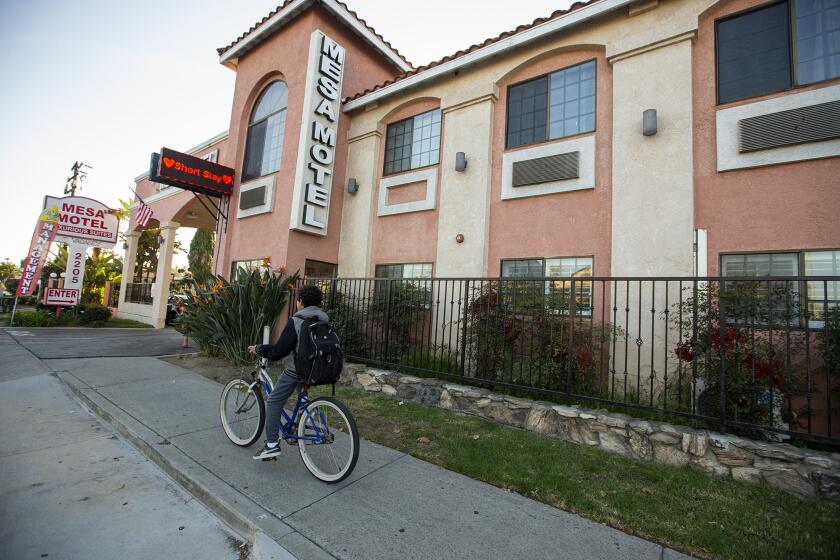Opera aficionados
- Share via
Coral Wilson
“ABCDXYQ,” sings Greg Egland, a music teacher at the Pegasus School.
“No,” shout the 14 kindergarteners in his music class, bursting
into laughter.
“ABCDEFGQR,” Egland tries again.
“No,” the children respond again.
This class knows their ABCs. Egland gives up, resorting to playing
the piano while the class lets their teacher know how the song is
supposed to go.
“My memory just isn’t what it used to be,” Egland tells them.
The music class starts off like any other for kindergarteners,
with students singing “John Jacob,” “If you are happy and you know
it” and “Hey diddle diddle.”
Fourteen weasels pop up, 14 “John the Rabbits” bounce along the
carpet, 14 “John the snails” wiggle on the carpet and seven lambs
follow seven Marys for “Mary had a little lamb.”
Egland’s hands leave the piano just long enough to correct a lamb
that didn’t stick with his Mary.
Then comes the video that the class has been waiting for. It isn’t
Disney, but Wolfgang Amadeus Mozart’s opera “The Marriage of Figaro.”
The class picks up where it left off -- on the scene in the opera
when Susanna goes away to see the countess, then comes back in.
“So that’s the pearl he is marrying,” sings Susanna in the opera.
Egland recaptures the class’s attention.
“She says pearl to mean she is beautiful, but does she really
think she is beautiful?” Egland asks his class. “No, she is being
sarcastic.”
The children on the carpet are unsure of the word “sarcastic.”
“If you misbehave and I say you behaved really well, do I mean
it?” Egland asks. “That’s sarcastic.”
He moves on to the next question.
“Now listen to the music, what is it?” he asks them. “Rrr “
“Racha Ratat. Ri?” the students answer.
“[That’s right] recitative,” Egland helps out.
“Re-chee-tah-TEE-vah.”
“Such modest eyes, so demure,” the opera continues with a
confrontation between Susanna and Marcellina.
“Demure means ‘so nice,’ but does she mean it?” Egland asks.
“No,” the class responds, catching on.
“At your service, radiant lady,” Egland reads the subtitles out
loud. “Please you go first.”
The two women on the screen are stuck in the doorway, acting
polite -- sarcastically.
“No, after you,” he continues reading.
The students watch the screen intently, enraptured. Then the class
is over.
But wait, one more question.
“So what does that mean, recitative?” he asks them.
Six-year-old John Drayton’s hand shoots up into the air, his face
glowing with information.
“Uh, I don’t know,” he admits, his confidence falters and his face
falls.
“Whole orchestra or the harpsichord?” Egland prompts him.
“Orchestra,” John’s face brightens.
“No, that’s Aria,” Egland corrects him.
That leaves one guess and John gets it right on his second try.
OK, so they don’t quite understand it all yet but they are
starting to develop an appreciation of opera. And that, Egland says,
is the whole point.
All the latest on Orange County from Orange County.
Get our free TimesOC newsletter.
You may occasionally receive promotional content from the Daily Pilot.






